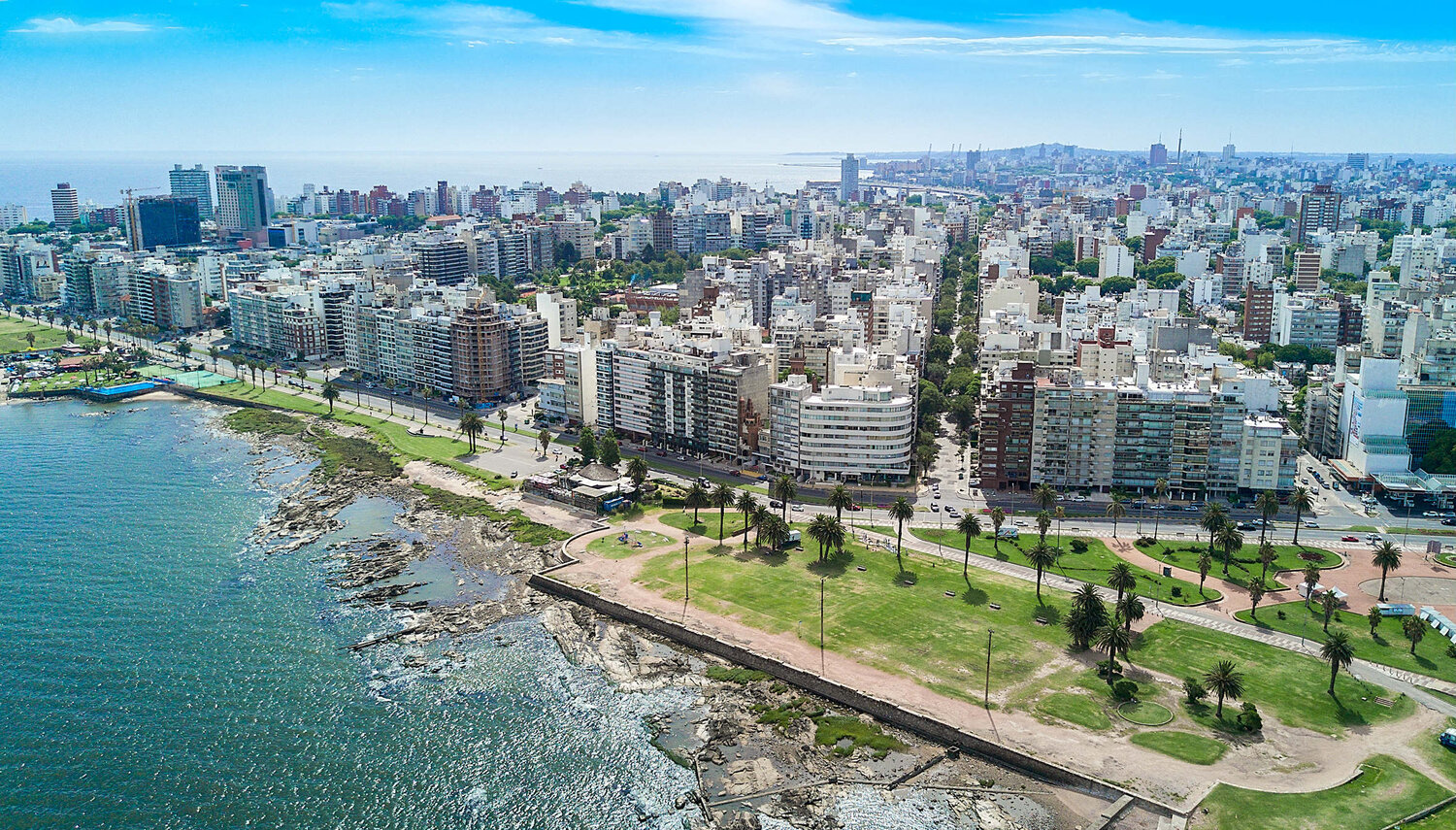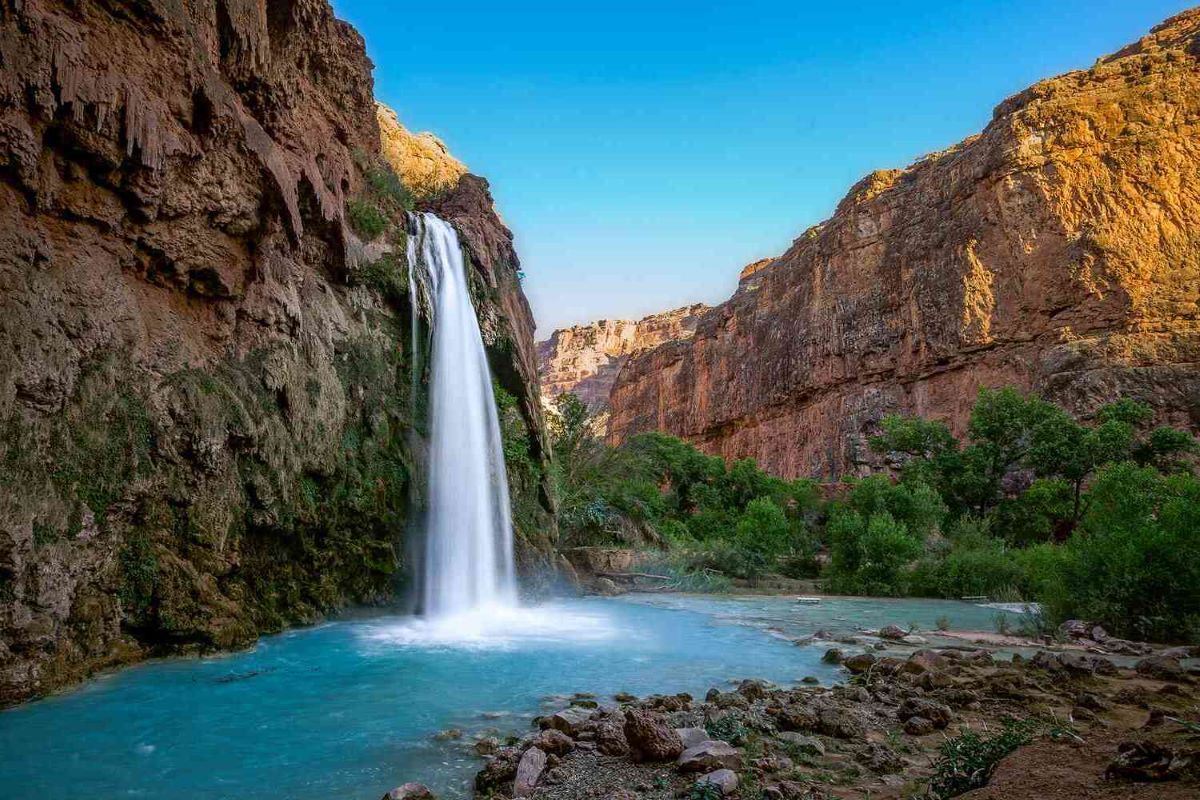
Uruguay, a small but vibrant country nestled between Brazil and Argentina in South America, is often overlooked by travelers in favor of its more famous neighbors. However, this little gem has a lot to offer. From breathtaking natural landscapes to a rich cultural heritage, Uruguay is a destination worth exploring.
With a population of just over 3 million people, Uruguay is known for its warm and welcoming atmosphere. The country has a strong democracy, advanced social welfare, and a high standard of living. It is also renowned for its progressive policies, including the legalization of same-sex marriage and the regulation of the cannabis industry.
In this article, we will delve into 37 fascinating facts about Uruguay that will shed light on its history, geography, culture, and much more. So, sit back, relax, and join us on this journey to discover the beauty and hidden treasures of Uruguay.
Key Takeaways:
- Uruguay, the second-smallest country in South America, boasts the world’s longest national anthem and a rich cultural heritage, making it a must-visit destination for travelers seeking unique experiences.
- With progressive social policies, vibrant carnival celebrations, and a commitment to renewable energy, Uruguay offers a blend of history, culture, and natural beauty that captivates visitors from around the world.
The National Anthem of Uruguay is the longest in the world.
Did you know that the National Anthem of Uruguay, known as “Himno Nacional,” holds the record for being the longest national anthem in the world? It has a total of 105 bars, making it quite unique.
Uruguay is the second-smallest country in South America.
With a land area of approximately 176,215 square kilometers, Uruguay is the second-smallest country on the South American continent, after Suriname. However, don’t let its size fool you, as Uruguay is packed with incredible experiences.
The name “Uruguay” means “River of the Painted Birds.”
The name Uruguay originated from the Guarani language, with “urú” meaning “river” and “guay” meaning “painted birds.” This name captures the beauty and diversity of the country’s natural landscapes.
Uruguay is known for its progressive social policies.
Uruguay has been recognized for its progressive social policies, including being the first country in Latin America to legalize same-sex marriage in 2013 and the production and sale of marijuana in 2013.
The Tango has deep roots in Uruguay.
While the Tango is often associated with Argentina, its origins can also be traced back to Uruguay. The city of Montevideo played a vital role in the development of this iconic dance, contributing to its rich cultural heritage.
Mate is the national beverage of Uruguay.
Mate, a traditional South American drink made from steeping dried leaves of the yerba mate plant, is deeply ingrained in Uruguayan culture. It is commonly shared among friends and family in a special gourd and sipped through a metal straw called a bombilla.
Soccer is a national passion.
Like many other South American countries, Uruguayans are passionate about soccer. The national team has achieved remarkable success, winning the FIFA World Cup on two occasions and producing legendary players.
Montevideo is the capital and largest city.
The vibrant capital city of Uruguay, Montevideo, is home to approximately half of the country’s population. With its beautiful coastline, historic neighborhoods, and cultural hotspots, it is a must-visit destination.
Uruguay has a strong literary tradition.
Uruguay has produced many renowned literary figures, including poet Juana de Ibarbourou and author Eduardo Galeano. The country’s rich literary heritage is celebrated through various cultural events and festivals.
Punta del Este is a popular beach resort.
Punta del Este, located on Uruguay’s southeastern coast, is a glamorous beach resort that attracts visitors from around the world. Known for its stunning beaches, vibrant nightlife, and upscale resorts, it is a favorite destination for the jet-set crowd.
The national dance of Uruguay is called Candombe.
Candombe is a traditional Afro-Uruguayan dance and music style that holds deep cultural significance. It is an integral part of Uruguayan identity and is often performed during festivals and celebrations.
The World’s Tallest Sculpture of a Hand is in Uruguay.
Located along the coast of Punta del Este, the “Los Dedos” or “The Fingers” sculpture is an iconic landmark. It depicts a giant hand emerging from the sand and has become a symbol of the city.
Uruguay has a low level of corruption.
Uruguay consistently ranks as one of the least corrupt countries in Latin America. Its commitment to transparency and good governance has earned the country a positive reputation on the global stage.
The national flower of Uruguay is the Ceibo.
The Ceibo, also known as the Erythrina crista-galli, is the national flower of Uruguay. Its vibrant red color and unique shape make it a beautiful symbol of the country’s natural beauty.
The currency of Uruguay is the Uruguayan peso.
The official currency of Uruguay is the Uruguayan peso (UYU). When visiting the country, it is advisable to have some local currency for day-to-day transactions.
Uruguay ranks high in terms of quality of life.
Uruguay consistently ranks among the top countries in terms of quality of life in Latin America. Factors such as safety, healthcare, education, and social stability contribute to its high rankings.
The carnival celebrations in Uruguay are legendary.
Uruguay’s carnival celebrations, known as “Carnaval,” are famous for their vibrant parades, elaborate costumes, and energetic music. The carnival season attracts both locals and tourists who want to experience this lively cultural event.
The official language of Uruguay is Spanish.
Spanish is the official language of Uruguay, and the majority of Uruguayan people speak it as their first language. However, due to its proximity to Brazil, Portuguese is also commonly understood and spoken in border areas.
Uruguay is a leading producer of beef.
Uruguay is renowned for its high-quality beef production. The country’s extensive grasslands and favorable climate contribute to raising cattle of exceptional quality, making it a prime destination for meat lovers.
The national soccer team is called “La Celeste.”
The Uruguayan national soccer team is known as “La Celeste,” which translates to “The Sky Blue.” The team’s iconic blue and white striped jerseys are instantly recognizable.
Uruguay has a high literacy rate.
Uruguay has one of the highest literacy rates in Latin America, with close to 98% of the population being literate. Education is highly valued in the country, and it is reflected in its impressive literacy statistics.
Jose Mujica, Uruguay’s former president, earned the title of “The World’s Poorest President.”
Jose Mujica, who served as Uruguay’s president from 2010 to 2015, gained international attention for his modest lifestyle and his donation of the majority of his salary to charity. He was regarded as the “World’s Poorest President.”
Uruguay has a strong tradition of carnival murga.
Carnival murga is a unique form of musical theater in Uruguay, characterized by satirical humor and social commentary. Murga groups perform during the carnival season, entertaining audiences with their music and theatrical performances.
The Constitution of Uruguay grants every citizen the right to access clean drinking water.
Uruguay is the only country in the world that constitutionally guarantees its citizens’ right to access clean drinking water. This demonstrates the country’s commitment to ensuring the well-being of its population.
Uruguay is a popular destination for nature lovers.
With its diverse ecosystems, Uruguay offers a wide array of natural attractions. From pristine beaches and wetlands to rolling hills and nature reserves, the country has something to offer every nature enthusiast.
Carlos Gardel, one of the most prominent figures in tango, was born in Uruguay.
Carlos Gardel, often referred to as the “King of Tango,” was born in Uruguay before moving to Argentina. His music and performances played a significant role in popularizing tango around the world.
Uruguay has a free and secular education system.
Education in Uruguay is free and secular, allowing equal access to education for all citizens. This commitment to education has resulted in high literacy rates and educational achievements.
Uruguay is a leading destination for digital nomads.
Uruguay’s strong infrastructure, relatively low cost of living, and excellent quality of life make it an attractive destination for digital nomads seeking a balance between work and leisure.
The Plaza Independencia is a significant landmark in Montevideo.
The Plaza Independencia, located in the heart of Montevideo, is a historic square that serves as a symbol of Uruguayan pride and independence. It is home to important landmarks such as the Solis Theatre and the iconic statue of General Artigas.
Uruguay has strict anti-smoking laws.
Uruguay implemented some of the strictest anti-smoking laws in the world in 2006, banning smoking in enclosed public places and workplaces. This proactive approach to public health has significantly reduced smoking rates in the country.
The Palacio Salvo is an architectural gem.
The Palacio Salvo, located in Montevideo, is a striking building that stands as a symbol of the city’s architectural heritage. It was once the tallest building in South America and continues to be a beloved landmark.
Uruguay is known for its impressive wine production.
Uruguay’s wine industry has gained recognition for producing high-quality wines, particularly Tannat, which is Uruguay’s flagship grape variety. Wine enthusiasts can explore vineyards and wineries across the country.
The Uruguayan flag has a unique sun emblem.
The flag of Uruguay features a distinctive sun emblem known as the “Sun of May.” It represents the May Revolution of 1810, which marked the beginning of the South American independence movement against Spain.
Uruguay has a low population density.
Uruguay has a relatively low population density, with vast unspoiled landscapes and plenty of open spaces. This makes it an ideal destination for those seeking peace and tranquility.
The Buquebus is the largest ferry service in South America.
Uruguay is connected to Buenos Aires, Argentina, by the Buquebus ferry service. It is the largest ferry operator in South America, offering convenient transportation between the two countries.
The Uruguayan coastline stretches for over 660 kilometers.
Uruguay boasts a stunning coastline that stretches for over 660 kilometers, offering breathtaking beaches and picturesque fishing villages. It is a paradise for sun-seekers and water sports enthusiasts.
Uruguay has a progressive approach to renewable energy.
Uruguay is committed to renewable energy and has made significant investments in wind and solar power. The country aims to generate 100% of its electricity from renewable sources by 2030.
These 37 facts about Uruguay provide just a glimpse into the rich tapestry of this remarkable country. From its cultural heritage and natural wonders to its progressive values and warm hospitality, Uruguay has something to offer every traveler.
So, if you’re seeking a unique and unforgettable experience, consider adding Uruguay to your travel bucket list. Explore the hidden gems, indulge in the local cuisine, and immerse yourself in the spirit of this captivating South American nation.
Conclusion
In conclusion, Uruguay is a fascinating country that offers a rich blend of natural beauty, vibrant culture, and historical significance. From its stunning coastline to its charming cities, there is much to explore and discover in this South American gem. Whether you’re a nature lover, history enthusiast, or simply looking for a unique travel experience, Uruguay has something to offer. So pack your bags and get ready to immerse yourself in the warmth and charm of Uruguay!
FAQs
1. Is Uruguay a safe country to visit?
Yes, Uruguay is generally considered safe for tourists. The country has a low crime rate and friendly locals who are known for their hospitality.
2. What is the official language of Uruguay?
The official language of Uruguay is Spanish. However, English is also spoken in major tourist areas and hotels.
3. What is the best time to visit Uruguay?
The best time to visit Uruguay is during the spring (October to November) and fall (April to May) when the weather is mild and pleasant. However, the summer months (December to February) are also popular due to the country’s beautiful beaches.
4. What are some must-see attractions in Uruguay?
Some must-see attractions in Uruguay include the charming colonial city of Colonia del Sacramento, the vibrant capital city of Montevideo, the picturesque beach town of Punta del Este, and the historic UNESCO World Heritage Site of Fray Bentos.
5. What is the currency in Uruguay?
The currency in Uruguay is the Uruguayan peso (UYU). Credit cards are widely accepted, and there are plenty of ATMs available for cash withdrawals.
6. Can I drink tap water in Uruguay?
Yes, tap water in Uruguay is safe to drink. It is considered to be of high quality and meets international standards.
7. Are there any unique culinary dishes in Uruguay?
Yes, Uruguay is known for its delicious grilled meats, specifically the famous beef asado. Mate, a traditional herbal tea, is also a popular beverage in Uruguayan culture.
8. Is it customary to tip in Uruguay?
Tipping in Uruguay is not obligatory, but it is appreciated for good service. A tip of 10% is generally considered appropriate in restaurants and for tour guides.
Uruguay's captivating facts merely scratch the surface of South America's hidden gems. Delving deeper into Uruguay's architectural marvels, Auditorio Nacional Adela Reta stands as a testament to the country's cultural prowess. Football enthusiasts will find themselves enthralled by the rich history and legacy of Estadio Gran Parque Central. For those intrigued by political figures, Juan Mara Bordaberry's life offers a fascinating glimpse into Uruguay's complex past. Explore these compelling topics to gain a more comprehensive understanding of this vibrant nation and its multifaceted heritage.
Was this page helpful?
Our commitment to delivering trustworthy and engaging content is at the heart of what we do. Each fact on our site is contributed by real users like you, bringing a wealth of diverse insights and information. To ensure the highest standards of accuracy and reliability, our dedicated editors meticulously review each submission. This process guarantees that the facts we share are not only fascinating but also credible. Trust in our commitment to quality and authenticity as you explore and learn with us.


